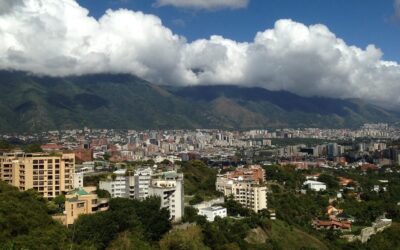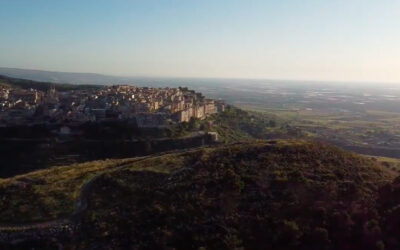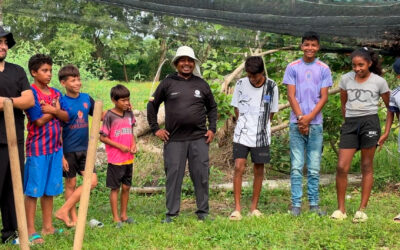 Hungary has a very clear identity and it is a centuries-old bridge between Eastern and Western Europe. After the fall of communism it now finds itself in a crucial moment of transition. The country is seeking a new equilibrium between maintaining its specific characteristics and openness to the rest of the world. Speaking to the Hungarian community, during her recent visit, Maria Voce, the current president of the Focolare, invited them to ‘be aware of the many talents you have. Give them and welcome those of other peoples, learning always more how to work together.’
Hungary has a very clear identity and it is a centuries-old bridge between Eastern and Western Europe. After the fall of communism it now finds itself in a crucial moment of transition. The country is seeking a new equilibrium between maintaining its specific characteristics and openness to the rest of the world. Speaking to the Hungarian community, during her recent visit, Maria Voce, the current president of the Focolare, invited them to ‘be aware of the many talents you have. Give them and welcome those of other peoples, learning always more how to work together.’
 As a result of its geographical location and its past history, Hungary has had an important role also for the Focolare. Already in 1965, following the tragic events of the revolution that year, Pope Pius XII launched an appeal to the faithful throughout the world to ‘bring back God into society.’ Chiara Lubich responded with an exciting initiative: she began the Volunteers of God. In 1996 Budapest hosted the celebrations of their 40th anniversary and in 2006 the city hosted the ‘Volunteerfest’ with 12,000 people who came from 92 different countries.
As a result of its geographical location and its past history, Hungary has had an important role also for the Focolare. Already in 1965, following the tragic events of the revolution that year, Pope Pius XII launched an appeal to the faithful throughout the world to ‘bring back God into society.’ Chiara Lubich responded with an exciting initiative: she began the Volunteers of God. In 1996 Budapest hosted the celebrations of their 40th anniversary and in 2006 the city hosted the ‘Volunteerfest’ with 12,000 people who came from 92 different countries.
 In 1961, Chiara Lubich, visiting Budapest, was struck by the Church’s enforced clandestine existence. That year a focolare house was opened in Vienna, and from there, in the 70s and 80s, visits to Hungary took place. Contacts were made with people previously met in Italy and Austria. The first Focolare community in Hungary goes back to the years of communism when, between 1981 and 1982, men’s and women’s focolare houses were opened in Budapest.
In 1961, Chiara Lubich, visiting Budapest, was struck by the Church’s enforced clandestine existence. That year a focolare house was opened in Vienna, and from there, in the 70s and 80s, visits to Hungary took place. Contacts were made with people previously met in Italy and Austria. The first Focolare community in Hungary goes back to the years of communism when, between 1981 and 1982, men’s and women’s focolare houses were opened in Budapest.
The Focolare Movement in that difficult moment of history had an important role in supporting relationships between Catholic individuals and organizations, and so contributing to maintaining and developing the faith. Especially important was the role of several families who, with generosity, moved house and brought the Spirituality of Unity to various towns in Hungary and beyond. Thanks also to the commitment of several priests, the spirituality of the Movement spread further afield, transmitting the freshness and genuineness of gospel life.
 Their shared suffering also strengthened relationships among Christians from the historic Hungarian Churches (Catholic, Reformed and Lutheran). Today they witness together to a fruitful ecumenical dialogue. The result has been two historic youth events: in 2000 the first ecumenical meeting for young people, organized by young people’s movements, with 3000 participants, and a repeat in 2003 with 16,000 participants. The Spirituality of Unity is spreading by means of books and the magazine Új Város.
Their shared suffering also strengthened relationships among Christians from the historic Hungarian Churches (Catholic, Reformed and Lutheran). Today they witness together to a fruitful ecumenical dialogue. The result has been two historic youth events: in 2000 the first ecumenical meeting for young people, organized by young people’s movements, with 3000 participants, and a repeat in 2003 with 16,000 participants. The Spirituality of Unity is spreading by means of books and the magazine Új Város.
The Word Life, which has 15,000 printed copies, is published in weekly newspapers and on the internet and is transmitted by radio.
 History, therefore, has prepared the Focolare in this country to do its part in promoting initiatives that witness to the effort to build up fraternity, locally and internationally, run by younger and older people together: ‘72 hours without comprise’, ‘Peace Project Network’, ‘Mission to the City’, ‘Run for Unity’, ‘United World Week’.
History, therefore, has prepared the Focolare in this country to do its part in promoting initiatives that witness to the effort to build up fraternity, locally and internationally, run by younger and older people together: ‘72 hours without comprise’, ‘Peace Project Network’, ‘Mission to the City’, ‘Run for Unity’, ‘United World Week’.
In 2011, fifty years on from Chiara’s visit to Hungary, Maria Voce, visited the Movement’s communities, meeting priests, families and young people. She saw the commitment of New Families to work with young couples and how they work together with other associations and with various Churches to support marriage and family life. Maria Voce met with the members of New Humanity, which brings together people active in various worlds: health, economy, politics, sport and education.
 But one of the most important meetings was with young people. Indeed, the Movement in Hungary is currently preparing to welcome 12,000 young people from all over the world between 31 August and 2 September 2012 for the 10th Genfest. Budapest will become a workshop of unity for the world. The event is called Let’s bridge and it will help Eastern European countries to ‘build bridges’ by displaying their specific values and characteristics. ‘It should be a huge celebration,’ Maria Voce said to the young people when they met. ‘It should give huge joy to the young people who come… letting them see for themselves that there is nothing more beautiful than the gospel revolution. We’ve seen revolutionaries of another sort: in the fields of art, of music … but a revolution that changes our lives and that can change the lives of others … the revolution of the gospel, the only one that God has really shown us with such power … let’s give all we’ve got to show it also to others!’
But one of the most important meetings was with young people. Indeed, the Movement in Hungary is currently preparing to welcome 12,000 young people from all over the world between 31 August and 2 September 2012 for the 10th Genfest. Budapest will become a workshop of unity for the world. The event is called Let’s bridge and it will help Eastern European countries to ‘build bridges’ by displaying their specific values and characteristics. ‘It should be a huge celebration,’ Maria Voce said to the young people when they met. ‘It should give huge joy to the young people who come… letting them see for themselves that there is nothing more beautiful than the gospel revolution. We’ve seen revolutionaries of another sort: in the fields of art, of music … but a revolution that changes our lives and that can change the lives of others … the revolution of the gospel, the only one that God has really shown us with such power … let’s give all we’ve got to show it also to others!’
Visit Hungary’s pages on Focolare Worldwide!
Websites: Focolare Movement: www.fokolare.hu
Young People for a United World: www.ujifju.hu
Genfest: www.genfest.org




0 Comments